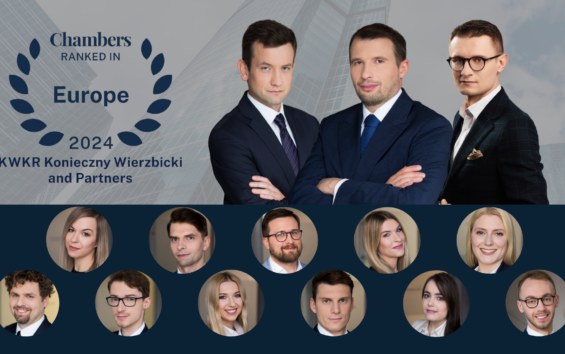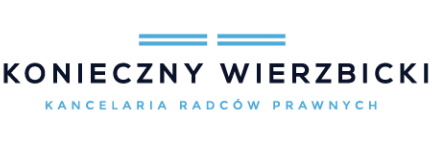
Due to Russia’s armed attack on Ukraine, many Ukrainian citizens have lost or been forced to hurriedly abandon their households and seek help from foreign neighbors. Poland is one of the countries Ukraine has access to almost immediately.
Polish officials were also quick to decide on additional formal facilitations for Ukrainian refugees. The following guide is a comprehensive overview of what the current conditions for crossing the Polish-Ukrainian border look like. We encourage you to read the following information verified by our lawyers.
Entry into Poland following the current (28.02.2022) regulations:
- based on a biometric passport – a stay of up to 90 days is permitted; during this period you can submit an application for a residence and work permit, an application for a residence permit, an application for a work permit; work is also possible based on a statement on entrusting work to a foreigner, but this is a solution for a maximum period of 24 months, during which time a work permit or a residence and work permit must be obtained).
- based on a national visa (type D) or Schengen visa (type C), including those issued by an authority of another EU member state.
- Residence permit (temporary, permanent, long-term EU resident).
- Application for international protection (for refugee status).
- Consent of the Border Guard Commander to an entry for a period of up to 15 days.
In practice – the Polish administration declares (https://www.gov.pl/web/udsc/ukraina; information of 27.02.2022) that anyone running from Ukraine from the war can find a shelter in Poland and does not have to worry about the legality of their stay, because Polish services will take care of extending the authorization for as long as needed. There are also reports that the EU intends to allow Ukrainians to stay in the EU for up to three years without additional formalities (“An overwhelming majority of EU countries support a proposal to allow refugees from Ukraine to stay in member states for at least three years. The formal decision will come soon, reports the New York Times” [for: onet.pl, g. 23.03 on 27.02.2022]).
Reduced requirements for documents: Polish border guards will let through the Ukrainian border also people who do not have a foreign passport. Any other document confirming identity (passport, internal passport, birth certificate in case of children without other documents) is sufficient.
Stay in Poland
- Ukrainians with biometric passports may stay in Poland for up to 90 days under a visa-free regime.
- People holding a residence permit may stay in Poland until the expiry of the period for which the permit was issued. The Polish authorities declare that those, whose residence permits are about to expire need not fear any consequences – the legality of their stay in Poland will be extended.
- People who have entered Poland without documents (based on a permit issued by the Commander of the Border Guard) may stay in Poland for 15 days. During that time they should apply to the provincial office for a temporary residence permit or residence and work permit. This should be done by post – applying is equivalent to obtaining the right of legal residence until the application is examined.
- Those, who have applied for international protection (refugee status) stay legally in Poland until their application is examined; however, they cannot work, nor will they be able to work for the first 6 months after being granted protection.
Work in Poland
Currently work in Poland is legal for persons who have a work permit, a residence and work permit, a residence permit for a long-term EU resident, and also for persons for whom the employer submitted to the Labor Office a statement on entrusting work to a foreigner.
- Those, who wish to apply for a residence permit or a residence and work permit after crossing the border based on a Border Guard permit, must file an appropriate application to the Provincial Office competent for the place of residence. As a law firm, we provide application filing services.
- Those, who stay in Poland under the visa-free regime (up to 90 days), can apply for a residence and work permit during that time; if they find a job, they can also obtain the possibility to work based on an employer’s declaration of entrusting work to a foreigner. The declaration allows you to work for up to 24 months, in which case you must apply for a residence and work permit before the expiry of the 90-day visa-free period. We support employers in submitting declarations and employees in obtaining documents entitling them to legal stay in Poland.
Those, who have applied for international protection (refugee status) cannot work until they are granted international protection. They will also be unable to work for the first 6 months after being granted protection.
Medical care
All Ukrainian citizens who have entered Poland in connection with the Russian invasion may receive free medical assistance in Polish health care facilities, if necessary. This applies to Ukrainian who have a certificate issued by the Border Guard of the Republic of Poland or an imprint of the stamp of the Border Guard of the Republic of Poland in their travel document, confirming their legal stay in the territory of the Republic of Poland after crossing the border from 24 February 2022.
- Medical care will be provided by general practitioners (primary health care) and in specialist clinics or hospitals.
- Child who does not have a passport or other Ukrainian identification document can cross the border – based on birth certificate only. For Adults obtaining a foreign passport on the territory of Poland is possible by agreement with consular authorities of Ukraine and the legislation of Ukraine. However currently, according to information obtained from the Consulate of Ukraine, foreign passports are not issued, and consular services are suspended.
- All children, regardless of their basis of residence, aged 7-18 are subject to compulsory education in Poland. A child may be admitted to school throughout the school year. He/she will be referred to a class depending on the number of years of education completed abroad. The enrolment of a child to school takes place by applying the school principal. The public elementary schools in the area where the child lives accept the child in question ex officio. In the case of choosing other elementary schools and secondary schools, it is possible depending on the availability of places. To find out which school has free places, one should contact the education department of the municipality where the child lives.
Animals
Animals accompanying the traveler (dogs, cats, and ferrets) should have:
- A chip/transponder or legible tattoo identifying the animal.
- Rabies vaccination.
- A health certificate and documentation detailing the animal’s identification, as well as vaccination details and serological test results.
- The result of the rabies antibody titration test.
However, according to information published by the Chief Veterinarian, entry with an animal from Ukraine is now possible, even if the above requirements are not fulfilled. A temporary procedure has been implemented, providing for the submission of a declaration by the owner/guardian of the animal. It is not necessary to have a rabies test result.
We hope that this basic information will help Ukrainian refugees to survive in Poland. If anyone has additional questions, a 24-hour hotline has now been set up at +48 47 721 75 75.
There is also a special portal, where you can find all the official and up-to-date information about Ukrainian refugees in Poland: ua.gov.pl. We encourage you to keep track of the changes published on the website. This way you can avoid misinformation and also receive dedicated assistance.
———————————————————————————–
Перебування Українців в Польщі – практичні інформації
У зв’язку із інвазією Росії проти України багато громадян України понесли втрати або були змушені у поспіху покинути свої доми та шукати допомоги у своїх закордонних сусідів. Польща є одниією із держав, до яких в Україні є прямий доступ.
Польські чиновники швидко ухвалили додаткові полегшення для біженців із України. Нинішній довідник є комплексовою інформацією про умови перетину польсько-українського кордону. Ми запрошуємо дізнатися з нижчевказаними інформаціями, яких підготували наши юристи.
В’їзд до Польщі згідно чинному на 28.02.2022 законодавству:
- Особи, що перебувають в Польщі у рамках безвізового режиму (до 90 днів), можуть впродовж цього часу подати заяву на отримання дозволу на проживання і роботу; вони також можуть – якщо знайдуть роботу – отримати можливість працювати на підставі заяви працедавця про доручення роботи іноземцеві. Декларація дозволяє роботу на строк до 24 місяців, в цьому випадку до витікання 90-денного безвізового періоду необхідно подати заяву на отримання дозволу на проживання і роботу. Ми допомагаємо працедавцям в поданні декларацій, а працівникам – в отриманні документів, що надають право на легальне перебування в Польщі.
- На підставі національної візи (тип D), або Шенґенські візи (тип С), у тому числі такій, яку надала Українцеві інша держава Євросоюзу.
- На підставі дозволу на перебування (часове, постійне, перебування довгострокового резидента ЄС).
- На підставі заяви на надання міжнародної охорони (надання статусу біженця).
- На підставі дозволу керуючого Прикордонною Службою (Стражєю Ґранічною) Республікі Польща – до 15 днів.
На практиці – польські чиновники декларують (https://www.gov.pl/web/udsc/ukraina; інформація опублікована 27.02.2022), що кожному, хто втікає з України перед війною, дозволять в’їхати до Польщі, та що така людина не повиння хвилюватися про легальність свого побуту в Польщі, тому що польські чиновники піклуватимуться, щоб їх перебування в Польщі було легальо, доки це буде потрібно. З’явилися також інформації, що ЄС планує дозволити Українцям перебувати на території Союзу навіть до 3 років без додаткових формальностей («Переважна білшість держав ЄС підтримує пропозицію надання біженцям із України дозволу на перебування в державах-учасниках ЄС щонайменш на три роки. Рішення незабаром – інформує Нью Йорк Таймс» [Onet.pl, 23.03 г., 27.02.2022]).
Обмежені вимоги щодо документів: польська прикордонна служба (Страж Ґранічна) дозволяє перетинати кордон також особам, в якиї нема закордонпаспорту. Повністю вистачить інший документ, що підтверджує ідентичність (паспорт, внутрішній паспорт, акт народження у випадку дітей, які не мають інших документів).
Перебування в Польщі
- Українці, в яких є біометричний паспорт можуть перебувати в Польщі протягом 90 днів у безвізовому режимі.
- Люди, в яких є дозвіл на перебування в Польщі, можуть перебувати в Польщі до закінчення строку, на який польська влада прийняла рішення про перебування. Польська влада декларує однако, що люди, у яких закінчується строк гідності побутових документів, не повинні боятися ніяких наслідків – легалність їхнього побуту в Польщі буде продовжена.
- Люди, які в’їхали до Польщі без документів (на підставі згоди від коменданта Прикордонної Служби (Стражи Ґранічной)) можуть перебувати в Польщі строком до 15 днів. Впродовж цього періоду такі особи повинні подати до Установи Воєводи визначеній за місцем перебування заяву на дозвіл на часове перебування або перебування та працю. Це треба зробити поштою – подання заяви є однозначним із легалізацією побуту до дня розглядення заяви Воєводою.
- Особи, що звернулися за міжнародним захистом (наданням статусу біженця), можуть легально знаходитися в Польщі до розгляду їх заяви; проте вони не можуть працювати, і не зможуть працювати впродовж перших 6 місяців після надання захисту.
Праця в Польщі
Нині легально працювати в Польщі можуть особи, що мають дозвіл на роботу, дозвіл на проживання і роботу, дозвіл на проживання для довгострокового резидента ЄС, а також особи, відносно яких працедавець подав у Бюро праці заяву про доручення роботи іноземцеві.
- Особи, що бажають отримати дозвіл на проживання або дозвіл на проживання і роботу після перетину кордону на підставі дозволу пограничної служби, повинні подати відповідну заяву в провінційне управління за місцем проживання. Як юридична фірма, ми надаємо послугу пов’язане із поданням заяви.
- Особи, що перебувають в Польщі у рамках безвізового режиму (до 90 днів), можуть впродовж цього часу подати заяву на отримання дозволу на проживання і роботу; вони також можуть – якщо знайдуть роботу – отримати можливість працювати на підставі заяви працедавця про доручення роботи іноземцеві. Декларація дозволяє роботу на строк до 24 місяців, в цьому випадку до витікання 90-денного безвізового періоду необхідно подати заяву на отримання дозволу на проживання і роботу. Ми допомагаємо працедавцям в поданні декларацій, а працівникам – в отриманні документів, що надають право на легальне перебування в Польщі.
- Особи, що звернулися за міжнародним захистом(статус біженця), не можуть працювати до тих пір, поки їм не буде наданий міжнародний захист. Вони також не зможуть працювати впродовж перших 6 місяців після отримання захисту.
Медичне обслуговування
- Усі громадяни України, які в’їхали в Польщу у зв’язку з російським вторгненням, можуть при необхідності отримати безкоштовну медичну допомогу в польських медичних установах. Це стосується громадян України, що мають в проїзному документі свідоцтво, видане Пограничною охороною Республіки Польща, або відбиток друку Пограничної охорони Республіки Польща, що підтверджує їх законне перебування на території Республіки Польща після перетину кордону з 24 лютого 2022 року.
- Медична допомога виявлятиметься як лікарями загальної практики (первинна медико-санітарна допомога), так і в спеціалізованих клініках або лікарнях.
Діти
- Для дитини, що не має паспорта або іншого українського документу, що засвідчує ідентичність, перетин кордону можливий – на підставі свідоцтва про народження. Як і у випадку з дорослими – отримання закордонного паспорта на території Польщі можливо за домовленістю з консульськими установами України і регулюється українським законодавством. Проте нині, згідно інформації, отриманої в консульстві України, закордонні паспорти не видаються, а консульські послуги призупинені.
- Усі діти, незалежно від місця проживання, у віці від 7 до 18 років підлягають обов’язковій освіті в Польщі. Дитина може бути прийнята в школу впродовж усього навчального року. Його/її направлять в клас залежно від кількості завершених років навчання за кордоном. Зарахування дитини в школу відбувається шляхом подання заяви на ім’я директора школи. Державні початкові школи в районі проживання дитини приймають дитину згідно із місцем перебування дитини. У разі вибору іншої початкової школи і середньої школи, це можливо залежно від наявності місць. Щоб дізнатися, в якій школі є вільні місця, звернетеся у відділ освіти муніципалітету, де живе ваша дитина.
Тварини
Тварини, супроводжуючі мандрівника (собаки, кішки і тхори), повинні мати:
- Чіп/транспондер або розбірливе татуювання, що ідентифікує тварину.
- Вакцинація проти сказу.
- Свідоцтво про здоров’я і документація з вказівкою ідентифікаційних даних тварини, а також відомостей про щеплення і результати серологічного тесту.
- Результат тесту на титрування антитіл до сказу.
Проте, згідно інформації, опублікованої Головним ветеринарним лікарем, в’їзд з твариною з України тепер можливий, навіть якщо вищезгадані вимоги не дотримані. Була введена тимчасова процедура, що передбачає заяву власника/опікуна тварини. Наявність результатів тесту на сказ не обов’язково.
Ми сподіваємося, що ця підставова інформація допоможе українським біженцям вижити в Польщі. Якщо у когось виникнуть додаткові питання, була організована цілодобова гаряча лінія, на яку можна звернутися по телефону : +48 47 721 75 75.
Крім того, створений спеціальний портал, на якому можна знайти усю офіційну і актуальну інформацію про українських біженців в Польщі : ua.gov.pl. Ми закликаємо вас стежити за змінами, що публікуються на сайті. Таким чином, ви зможете уникнути дезинформації і отримати кваліфіковану допомогу.

